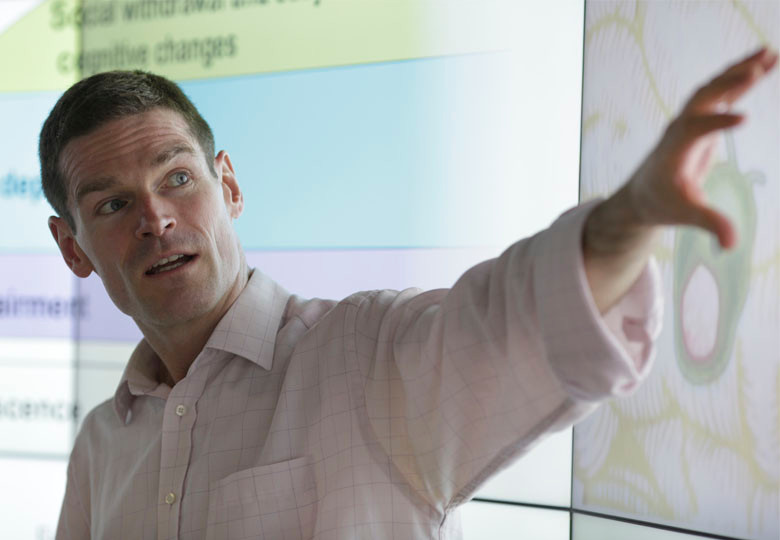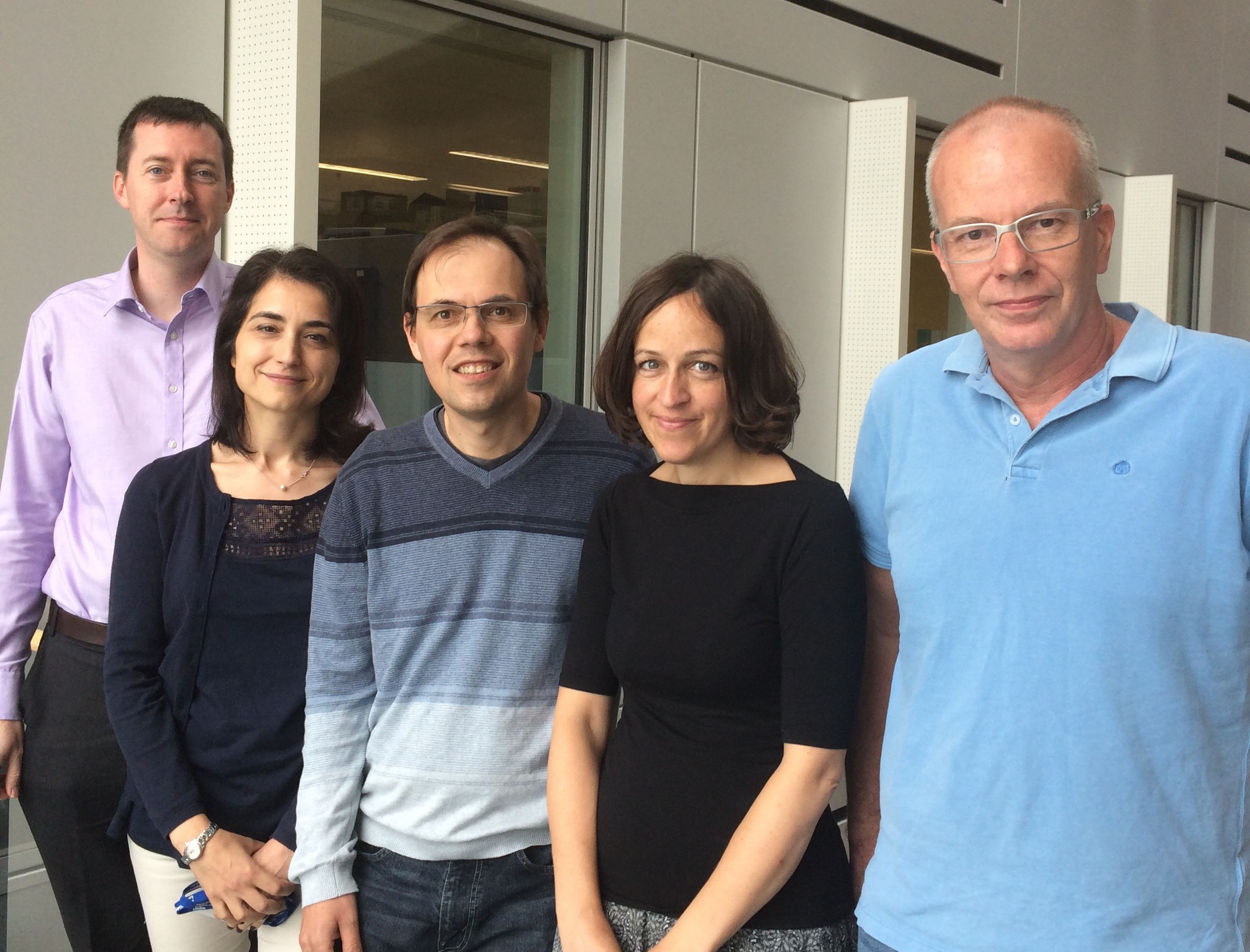By Helen Figueira
July 5, 2016
Time to read: 5 minutes
By Deborah Oakley
It’s promotions season, and six scientists at the MRC Clinical Sciences Centre (CSC) have been recognised by Imperial College London, which hosts the institute.

Oliver Howes, who leads the CSC’s Psychiatric Imaging group, has been appointed visiting professor. “My kids still think it’s a joke but I am honoured to be recognised in this way,” says Howes. “I would like to thank my colleagues and mentors at the CSC, particularly Matthias Merkenschlager and Mandy Fisher, for their support and advice over the years. It really has been invaluable.”
Howes’ group explores the causes of mental illness. One in four of us will suffer from mental illness at some point in our lives, and one in fifty will experience a more severe form, such as schizophrenia, he explained at the CSC’s Hearts and Minds public engagement event in June (right). Howes’ latest work on schizophrenia and inflammation in the brain could lead to a new way to treat the condition.
Also working with patients and on a potential new treatment is James Leiper, who has been promoted to professor. He says, “It’s great recognition for the tremendous work of the Nitric Oxide Signalling group, which began when I arrived at the CSC in May 2009.” A key focus of the group is sepsis, a life-threatening condition caused by infection. Sepsis is a national priority in the UK, with thousands of lives a year lost to it in our hospitals. Leiper is looking to take a “highly promising” new approach to treating sepsis into human trials, with funding from a BHF Translational Award.

Working just a few doors away from Leiper is Irene Miguel-Aliaga, who has also been promoted to professor. Miguel-Aliaga leads the CSC’s Gut Signalling and Metabolism group, which uses fruit flies as a model to explore how our brains and guts ‘talk’ to each other. In February, her latest work was published in Nature, suggesting that the organs in our bodies may have a sexual identity of their own. “The promotion is a nice validation of the work we do, and I partly owe it to the hard work of everyone in my team,” Miguel-Aliaga says. The group’s work in flies produces stunning images, and they use these to engage with the public through competitions and events.
Scientific images, albeit of an entirely different kind, are also a theme of Declan O’Regan’s research. O’Regan leads the CSC’s MR Facility and uses medical scanners to make 3D maps of patients’ hearts. These maps are part of research to explore how far artificial intelligence might help us to predict future illness, particularly heart disease. O’Regan has been appointed reader, and says: “Interdisciplinary research thrives at the CSC and this promotion recognises our innovative work at the interface between MR imaging, genetics and machine-learning in cardiovascular medicine.”
“I’m in the position I dreamed of being in. So can you get any better than that?” Christian Speck
A second appointment to the position of reader went to Simona Parrinello, who leads the CSC’s Cell Interactions and Cancer group. Parrinello says: “I’m very happy that this appointment recognises the last few years of work by the whole team.” The group published a paper in eLife last week about a “combined therapy” approach to treating the most common and deadly form of brain cancer. New treatments are urgently needed for the condition, and Parrinello’s team shows that targeting just one protein has two effects – it both halts the division of the cancer cells, and stops these cells from spreading.
From the behaviour of cells, to the strands of DNA within them, the sixth promotion went to Christian Speck, who leads the DNA Replication group at the CSC, and who has been promoted to professor. “When you’re a PhD student starting in the lab, you try to imagine yourself being a supervisor or principal investigator. You dream that you could maybe become a professor, one day,” says Speck.
Early in his career Speck explored how bacteria make copies of their DNA. He soon became dissatisfied with bacteria and aimed to find out how this process happens in people. “Now I’m doing exactly what I wanted to do, and I’m in the position I dreamed of being in. So can you get any better than that? Probably not!”
Speck says that as a professor he’ll now be able to help coordinate larger projects across Europe. His appointment builds on a prestigious Investigator award from the Wellcome Trust that he won in July last year.
The six scientists are based at the CSC, at Imperial College’s Hammersmith campus, and receive some of their funding from the College. The official appointments date is September 1 2016.
Contact
Deborah Oakley
Science Communications Officer
MRC Clinical Sciences Centre
L: 0208 383 3791
M: 07711 016942
E: